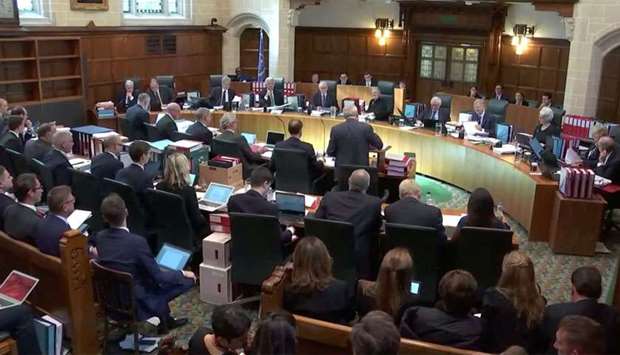Britain's highest court heard arguments for a second day Wednesday on whether Prime Minister Boris Johnson's decision to suspend parliament was unlawful or not.
Sir James Eadie, a lawyer representing Johnson, told the Supreme Court's 11-strong panel that the the government rejected the claim that the suspension aimed to ‘stymie’ parliament ahead of Brexit - Britain's departure from the European Union.
He also said decisions to suspend parliament ‘are inherently and fundamentally political in nature’ and not a matter for the courts, the Press Association reported.
Aidan O'Neill, a lawyer representing a group of around 75 lawmakers and members of the House of Lords, argued that the suspension was ‘motivated by the improper purpose of stymieing parliament.’ He cited a memo to the prime minister on the suspension that was dated August 15, and Johnson's handwritten response the following day.
The hearing opened Tuesday. It was triggered by challenges to Johnson's suspension of parliament until October 14, amid accusations that he aimed to limit scrutiny ahead of his deadline for Britain to leave the EU, with or without an exit deal, on October 31.
English and Scottish courts earlier ruled differently on legal challenges to the suspension, with a Scottish court holding that it was unlawful and an English one backing Johnson's government.
Johnson has said the five-week suspension was to allow the government time to prepare its agenda when lawmakers return.
Anti-Brexit legal activist Gina Miller and her co-plaintiff, former Conservative prime minister John Major, are among those giving evidence to the court.
The hearing was expected to run until Thursday, and a possible ruling due Friday.

